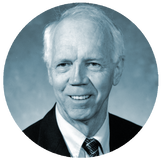|
Man-made tragedies and natural disasters come and go so quickly that we can barely keep track of them. Nothing could be worse that the combination of a natural disaster and a man-made disaster waiting to happen. I refer, of course, to the two major earthquakes in southern Turkey several weeks ago and the mass destruction that followed---now more than 45,000 deaths in Turkey alone, with many more still missing, more than 100,000 injured, almost 200,000 buildings destroyed, and millions left homeless.
Let me tell you about my strawberry jam making back in the summer of 1945. But, first some background. It was a bright sunny Saturday morning, and my parents had just left to attend the Wisconsin State Fair in West Allis in Milwaukee. They walked to the bus stop at the corner, took a city bus to West Racine, where they boarded the North Shore train for a 30-minute ride to Milwaukee where they took a streetcar ride for the half-dozen or more mile ride to West Allis. The occasion:. My Mom and Dad were off on a day-long trip as part of the celebration of their 25th wedding anniversary (they were married on July 5, 1920). This was big event because my Dad rarely took Mom anywhere, partly because we had not owned a car since probably 1942 when the 1932 DeSoto became a victim of a World War II scrap metal drive. In Milwaukee streetcars still ruled the streets and were heavily used because no new cars had been produced since 1941. In addition, during the war we had gasoline rationing that limited how much driving could be done. Because of the tremendous need for transportation to work and to downtown shopping, buses came and went very regularly and quite frequently to accommodate the many riders It was not until the late 1950's that the streetcar systems in the large cities were replaced by buses, partly on the grounds that the streetcars slowed auto traffic that was now booming with the renewal of auto production right after the end of World War II. But, back to the canning adventure now that you all know something about transportation during and after World War II.
Newspapers always played a central role in my life. As kids, we sprang to our feet at the thud of The Racine Journal-Times newspaper landing on the front porch. Whoever brought in the paper doled out the individual sheets so each of us (my two younger brothers and I) could read sprawled on the living room floor while my mother and older sister did the same sitting in our comfortable living room chairs.
Central to our newspaper reading was the “paperboy” who delivered the paper every day except Sunday and came to the house every Thursday afternoon to collect the weekly subscription fee. We kids all knew the paperboy and looked up to him. Secretly, we all aspired to become paperboys when we were older. It was the early 1940s, and these jobs offered a start in life for young boys whose early years had been scarred by the Great Depression. |
About the AuthorAt age 92 I decided to showcase my recent and current writings on a variety of topics outside of my career interests as an economist. My wife Sally’s dementia, my experiences of war, and my interests in improving higher education all compel me to write.
For most of the last decade I maintained a low profile, necessitated by my wife Sally's suffering from a decade-long siege of vascular dementia. After she passed away several years ago I wrote about our experience, in the belief that this would be helpful to the many others who suffer from dementia and their family caregivers. I am currently seeking a publisher for my book manuscript: The Forgotten: Dementia and the Right to Die. Over the past few years I began working on several other writing projects that are described more fully elsewhere in my blog. These include a nearly-completed book manuscript on my "expected proficiencies approach to the college major'' as a vehicle for reinvigorating liberal education. I continue to write on the shortcomings of UW-Madison's affirmative action policies and programs that over the years have been renamed "diversity and inclusion" policies and programs. Within two weeks of my graduation from UW-Madison in June 1950, the Korean War broke out. I was drafted and expected to be sent to Korea to join our fighting forces there. But instead I was sent to Turkey for 18 months. How lucky I was. I am also writing a memoir of my Korean War military experience when I served as an U.S. Army adviser in our military aid program in Turkey. Until I began branching out beyond economics, I failed to realize what a profound effect the Great Depression and World War II had on me as I grew up. I have already captured some of these recollections, with more of them to follow. With that introduction, I turn you over to my blog entries as well as my other writing projects described more fully elsewhere in my blog. Best wishes ~ W. Lee Hansen Dear Friends: I want you to have an opportunity to sign up to receive my periodic postings. Instructions for doing so will be coming soon.
Award-winning author W. Lee Hansen, Ph.D. is Professor Emeritus of Economics at the University of Wisconsin-Madison. Full bio.
Categories
All
Archives
November 2023
|

 RSS Feed
RSS Feed